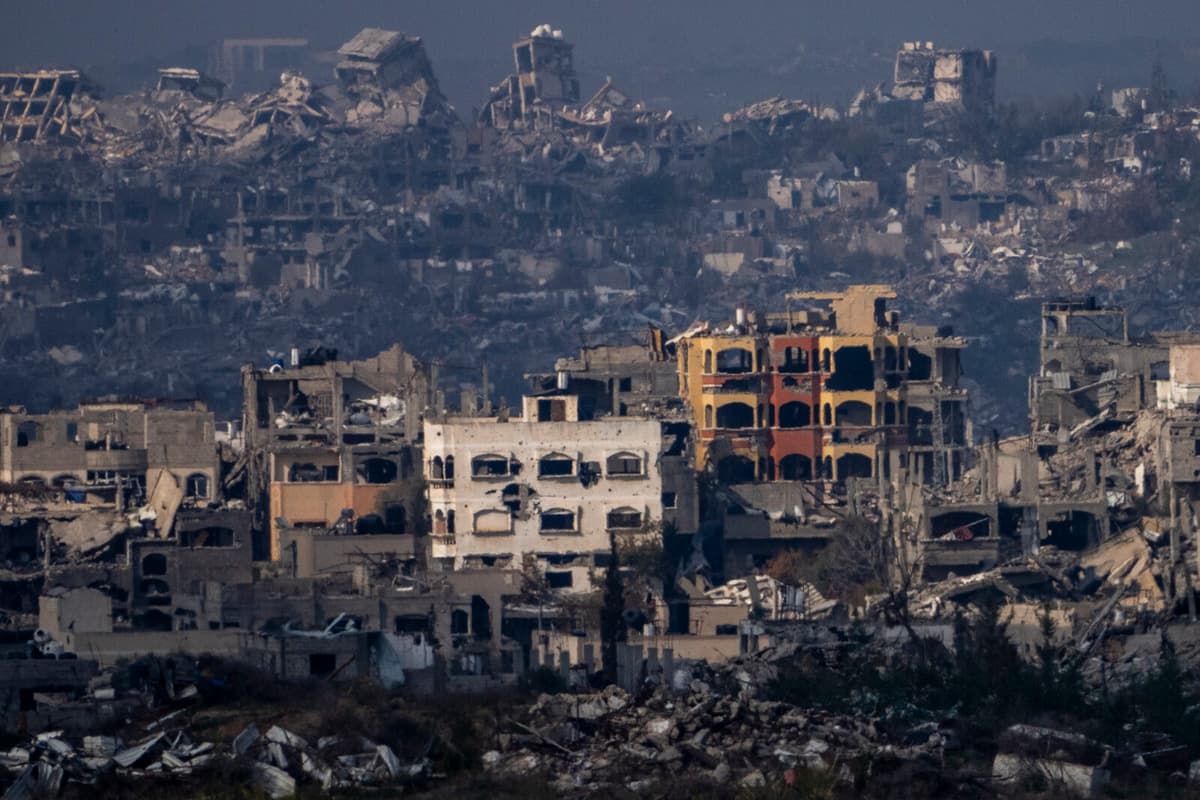On Wednesday, it was announced that the warring parties had agreed on a ceasefire, but several disagreements remained. During the night to Saturday, the Israeli government finally gave the green light.
The ceasefire will come into effect a few hours earlier than initially stated – already at half past nine on Sunday morning local time, corresponding to half past eight Swedish time, according to information from mediating Qatar.
"We advise residents to exercise extreme caution and await directives from official sources," adds Majed al-Ansari, spokesperson for the Qatari Foreign Ministry, in his social media post.
The first phase of the ceasefire will last for 42 days, six weeks, and during that time, further negotiations are planned to take place on two subsequent phases. The goal is to achieve a permanent end to the war, or a "sustainable calm" as stated in the agreement.
Women and Young People
Three people will be released from Hamas captivity when the ceasefire takes effect. It is reported to be three women. Then, an additional 30 people from the hostages will be released in batches.
In exchange, hundreds of Palestinians imprisoned in Israel will be freed. A total of over 730 people are to be released during the first six weeks, according to a list of names published by the Israeli Justice Department. This includes several members of terrorist-listed Hamas and Islamic Jihad, some of whom have been sentenced to life imprisonment for, among other things, murder.
However, Egypt claims that more than 1,890 Palestinians will be released during the first part of the ceasefire.
During the ceasefire, significantly more humanitarian aid will be allowed to flow into Gaza, following a long period where only small shipments were permitted.
Trucks to Gaza
Egypt's Foreign Minister Badr Abdelatty states that 600 trucks, including 50 loaded with fuel, will be able to pass into Gaza daily when the ceasefire begins. Abdelatty further says that "we hope that 300 trucks will go to the northern part of the Gaza Strip”.
Israeli forces will remain in Gaza but will gradually withdraw. Hundreds of thousands of Palestinians will be able to return to their war-torn hometowns.
The recent delays, according to Israel, were due to Hamas attempting to backtrack on certain points at the eleventh hour, which Hamas denies.
During the terrorist-listed Hamas attack on Israel on October 7, 2023, around 250 people, mostly Israelis, were taken hostage and brought to Gaza. Some of them are still being held by Hamas and other armed extremist groups that participated in the attack.
During a week-long ceasefire in November 2023, over 100 hostages were exchanged for 240 Palestinian prisoners. Additional Israelis have been freed by the country's military.
Currently, nearly 100 hostages are estimated to remain in Gaza. However, it is unclear how many of them are still alive.
More than 46,700 Palestinians in the Gaza Strip have been killed since the start of the war, according to health authorities in Hamas-controlled Gaza.
During the same period, nearly 1,600 Israelis have been killed, around 1,200 of them during the October 7 attack, according to Israeli authorities.
Almost the entire population of Gaza is displaced within the territory's borders, according to UN estimates. Many of them have been forced to flee multiple times. Large parts of Gaza's infrastructure lie in ruins.






